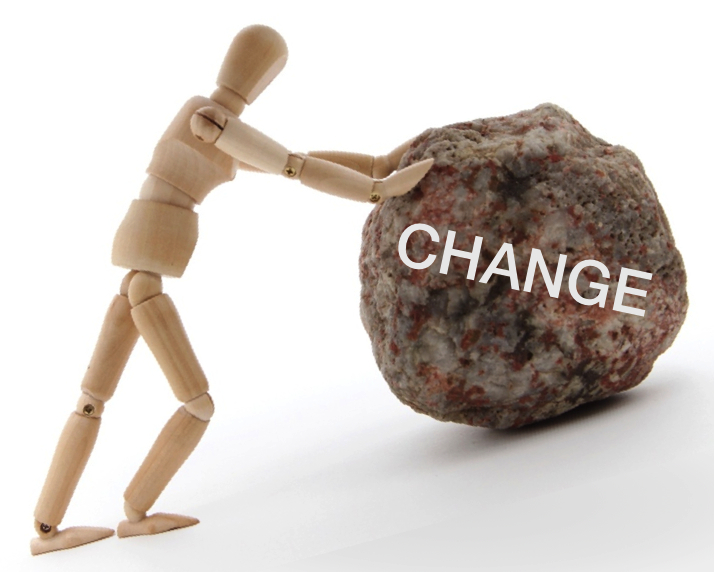A person who implements organizational change must wear many different hats. Effective change agents demonstrate extraordinary versatility within a broad skill set. The following are some of the roles you may play as you influence change in your organization.

Investigate
Implementing change is rarely as straightforward as executing obvious activities. Dealing with people’s behaviors and attitudes usually requires digging below the surface to understand the dynamics of the organization. Change agents look for clues that give away what is really preventing change from happening, so they can determine the steps most likely to remove obstacles and bring about success. Change agents are observant and analytical.
Advocate
Every organizational change needs someone who speaks up in favor of it and keeps attention on it. Change agents gain support for the initiative and engage people to participate. They also keep beating the drum of change when everyone else is busy with other activities. Change agents are vocal and persistent.
Encourage
Change happens when individuals alter their own activities, behaviors and attitudes. People experience varied emotions as their sense of stability is removed. In most cases, they are required to take risks and step outside their comfort zones. As a change agent, understand the personal implications of people involved, so you can help people feel better about making the changes. Change agents listen and encourage.
Facilitate
One of the key activities of a change agent is finding ways to help people change. Change agents clarify the change and make it easier to perform. As a facilitator, you design systems, tools, forms, and processes to enable people to succeed as they go through change. Change agents are helpful and creative.
Mediate
Different groups and individuals undergoing change in an organization frequently have opposing priorities. Change agents manage conflict by helping different parties see the situation from the other’s point of view, and by finding common goals. They work to improve understanding and reduce friction between multiple parties so they can collaborate to implement change. Change agents are peacemakers.
Advise
Change agents rely on their expertise to build their authority within the organization. By sharing knowledge, they demonstrate that they can be relied upon to point people in the right direction. Sometimes knowledge transfer occurs directly through training, but it also happens every day in meetings and conversations. Change agents are confident and knowledgeable.
Manage
A change agent ensures that there are goals, targets, and due dates for the project. Then they keep people on track to achieve them. Change agents find ways to hold people accountable, and make sure that appropriate rewards – or punishments – are handed out as necessary. Change agents are determined and conscientious.
As you implement change in your organization, pay attention to the roles you play most often, and which you feel most comfortable filling. Select which hat will make you most effective in different situations. As you increase your versatility, you will improve your effectiveness as a change agent.
If you enjoyed this post, you may also be interested in:
